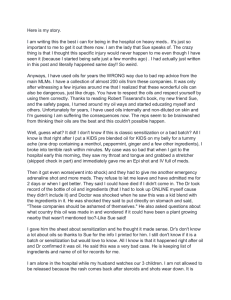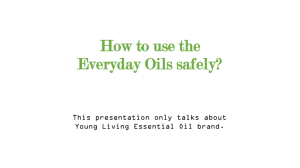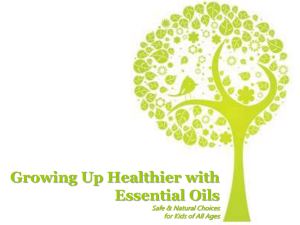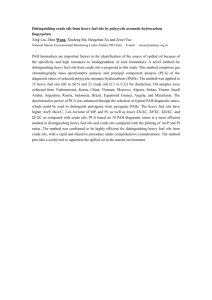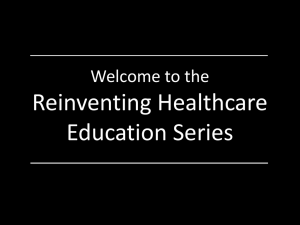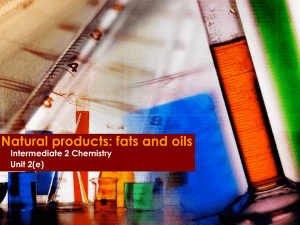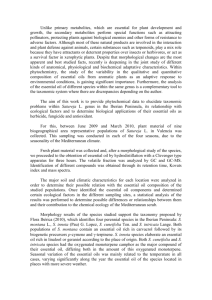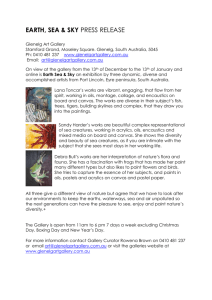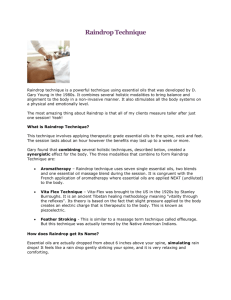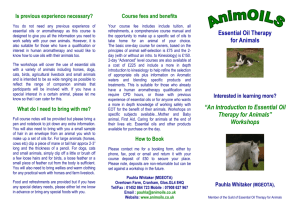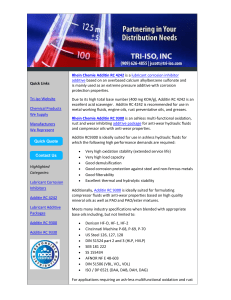Essential Oils and Hypertension
advertisement
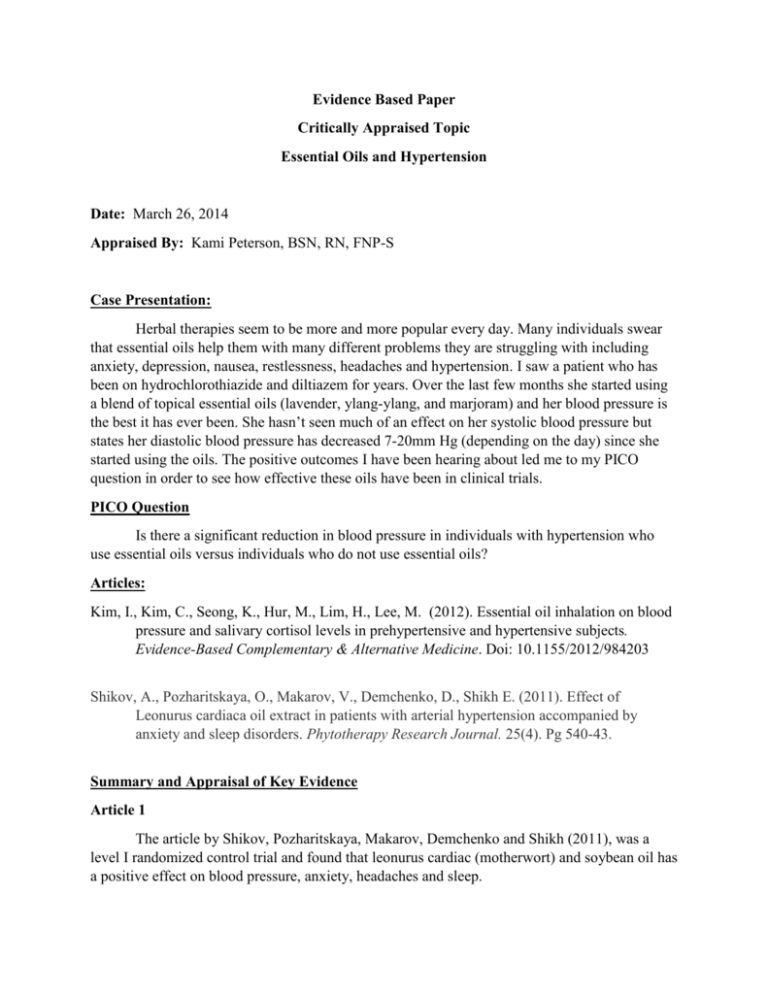
Evidence Based Paper Critically Appraised Topic Essential Oils and Hypertension Date: March 26, 2014 Appraised By: Kami Peterson, BSN, RN, FNP-S Case Presentation: Herbal therapies seem to be more and more popular every day. Many individuals swear that essential oils help them with many different problems they are struggling with including anxiety, depression, nausea, restlessness, headaches and hypertension. I saw a patient who has been on hydrochlorothiazide and diltiazem for years. Over the last few months she started using a blend of topical essential oils (lavender, ylang-ylang, and marjoram) and her blood pressure is the best it has ever been. She hasn’t seen much of an effect on her systolic blood pressure but states her diastolic blood pressure has decreased 7-20mm Hg (depending on the day) since she started using the oils. The positive outcomes I have been hearing about led me to my PICO question in order to see how effective these oils have been in clinical trials. PICO Question Is there a significant reduction in blood pressure in individuals with hypertension who use essential oils versus individuals who do not use essential oils? Articles: Kim, I., Kim, C., Seong, K., Hur, M., Lim, H., Lee, M. (2012). Essential oil inhalation on blood pressure and salivary cortisol levels in prehypertensive and hypertensive subjects. Evidence-Based Complementary & Alternative Medicine. Doi: 10.1155/2012/984203 Shikov, A., Pozharitskaya, O., Makarov, V., Demchenko, D., Shikh E. (2011). Effect of Leonurus cardiaca oil extract in patients with arterial hypertension accompanied by anxiety and sleep disorders. Phytotherapy Research Journal. 25(4). Pg 540-43. Summary and Appraisal of Key Evidence Article 1 The article by Shikov, Pozharitskaya, Makarov, Demchenko and Shikh (2011), was a level I randomized control trial and found that leonurus cardiac (motherwort) and soybean oil has a positive effect on blood pressure, anxiety, headaches and sleep. The data showed an 11-12mm Hg reduction in both systolic and diastolic blood pressure in 9% of the patients given an oral capsule containing motherwort and soybean oil. It also showed that patients with type I hypertension had slightly better effects than those who had type II hypertension. There was other positive effects seen from these oils as well which were a significant decreased in anxiety and depression in 32% of the patients, moderately in 48%, weak in 8% and 12% had felt no effect. Article 2: The second article by Kim, Kim, Seong, Hur ,Lim and Lee (2012), was a level II nonrandomized controlled study. This study looked at the effect that a mixture of essential oils (lavender, ylang-ylang, marjoram, and neroli) had on blood pressure reductions. The oils were infused into a necklace and worn by the subjects throughout the day. Data analysis found that there was a significant reduction in blood pressure in the experimental group versus the placebo and control groups. They found that the systolic blood pressure decreased by 4.7mm Hg and the diastolic blood pressure decreased 1.21mm Hg in four weeks. The subjects were required to take their blood pressures independently at home twice a day and record their results. After four weeks of therapy a 24 hour ambulatory blood pressure monitoring was conducted and found that there was a 10.77 mm Hg decrease systolically and a 7.11mm Hg decrease in diastolic blood pressure. Limitations: Each study had a small sample size. Both studies also reported no side effects or adverse reactions, however, neither study listed how they assessed for these issues. Blood pressure monitoring was done independently in the home which could possible lead to error and inconsistencies. There are also numerous essential oils, these two studies only touched on a few specific ones. Clinical Bottom Line: Essential oils have been shown to have a positive immediate and long-term effect on blood pressure if used consistently over time. A Study by the Angio-Scandinavian Cardiac Outcomes Trial-BP-Lowering Arm referenced in Kim et al. (2012) found that calcium channel blockers and ACE inhibitor combination therapy significantly lowers blood pressure by 2.7mm Hg. Essential oils may have a better effect on reducing the blood pressure of hypertensive patients. Even a small sustained reduction in blood pressure has been proven to be beneficial in reducing the risk of stroke and cardiovascular death. There is still research that is needed to be done on aromatherapy. It does seem to be beneficial. However, side effects, adverse reactions and specific dosages need to be looked at more closely before being able to fully recommend this as a treatment option.
